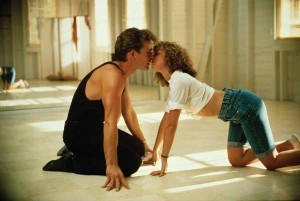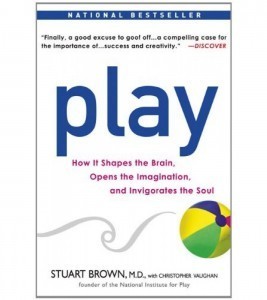Plays Well With Others
I recently learned that some churches in Scotland locked their playgrounds on Sunday, swing sets and teeter totters being too frivolous for the seriousness of the Lord’s day. I want to ask these elders if they lock up their crosswords, as well.
Are play and seriousness opposites. My four-year-old will claim a seriousness to his play, and the illustrious C.S. Lewis agrees (“The Weight of Glory”), because play matters.
This summer, I’m sharing my most practiced spiritual disciplines, the places I invite God to work and change me. So far we’ve talked about self-care, self-awareness, body image and feasting. This week, I want to pause on that attribute, playfulness, that even God practiced when he swung the stars high enough to sing together.
Scriptures are full of play, but our sermons are not.
“Let the rivers clap their hands, Let the mountains sing together for joy.” Psalm 98: 8
“The lines have fallen to me in pleasant places; Indeed, my heritage is beautiful to me . . . You will make known to me the path of life; In Your presence is fullness of joy. In Your right hand there are pleasures forever.” Psalm 16: 6 & 11
“For you will go out with joy And be led forth with peace; The mountains and the hills will break forth into shouts of joy before you, And all the trees of the field will clap their hands.” Isaiah 55: 12

In this scene from Dirty Dancing, they’re playing opposites, Baby is teaching Johnny.
“There is an appointed time for everything . . . a time to laugh, a time to dance, a time to embrace.” Ecclesiastes 3: 4-5
So I saw that there is nothing better for a person than to enjoy their work, because that is their lot.For who can bring them to see what will happen after them? Ecclesiastes 3: 22
“And wine which makes man’s heart glad, So that he may make his face glisten with oil, And food which sustains man’s heart.” Psalm 104: 15
“Draw me after you and let us run together! The king has brought me into his chambers.” “We will rejoice in you and be glad; We will extol your love more than wine. Rightly do they love you.” Song of Solomon 1:4
And I could, but I won’t quote at length the erotic play that we get in full featured metaphors in Song of Solomon. See 4: 7-16.
 When Jesus says that he comes to give us abundant life, how could he possibly exclude playfulness? How do you enjoy abundance without play? How do you drink wine with gladness of heart without play? How do you turn water into wine without a playful twinkle in your eye? How do you verbally spar with the Canaanite woman, the Samaritan woman, even play hide and seek with his two disciples on the road to Emmaus. How long did he wait until revealing himself? Haven’t you noticed, we follow a playful Messiah. And he knew how to play well with others.
When Jesus says that he comes to give us abundant life, how could he possibly exclude playfulness? How do you enjoy abundance without play? How do you drink wine with gladness of heart without play? How do you turn water into wine without a playful twinkle in your eye? How do you verbally spar with the Canaanite woman, the Samaritan woman, even play hide and seek with his two disciples on the road to Emmaus. How long did he wait until revealing himself? Haven’t you noticed, we follow a playful Messiah. And he knew how to play well with others.
But, despite these wonderful passage of Scripture, examples of the Son of God, we have sinned and grown old and our Father is younger than we (or so says G. K. Chesterton in Orthodoxy, see the essay “The Ethics of Elfland” a must read on this topic of play). We are afraid to play because it’s frivolous.
It’s what kids do, it’s not for adults and it’s not practical, efficient, worthwhile (unless it makes you work harder, so we take a 10 minute break so we can finish this post–for instance). Given the capacity God put in us to enjoy things (try searching “joy” or “blessed” in Scripture), it seems a bit bizarre that we are hungry to save people without really enjoying this “saved life.”
To what are we saving people? A life of more work, more evangelizing, more genuflecting, more church attending? Why should someone follow Jesus? What kinds of things will they get in abundance?
For one thing, following Jesus means you become more fully alive, more like yourself, the one with a specific play personality. Following Jesus frees us to learn to play, for it is those who played well in this life from Amelia Earhart to Albert Einstein who end up creating, inventing, discovering, directing, storytelling with a buoyancy that whisked us into their masterpiece.
Last year, Soulation’s writers spent a month writing about play, I joined in and admitted something then, that I no longer believe. I used to think that I played awkwardly, like a 12-year-old trying to slow dance.
Since then, I’ve read Play How It Shapes the Brain, Opens the Imagination, and Invigorates the Soul by Stuart Brown, a pioneer in play research.
Philosopher that I am, I felt a mini-Hallelujah Chorus bubbling up as I landed on this list explaining what counts as play. It will be a template for those of you who, like me, have been so indoctrinated in working well we’ve forgotten what counts as play for us.
The seven properties of play, as defined by Stuart Brown, official Play Expert, and Founder of the National Institute of Play (yes, this is a real thing).
Apparently purposeless (done for it’s own sake)
Voluntary
Inherently attractive
Freedom from time
Diminished consciousness of self
Improvisational potential
Continuation desire
 Brown unpacks these in his book, which I do recommend (he even explains why calling someone a “player” is a misnomer).
Brown unpacks these in his book, which I do recommend (he even explains why calling someone a “player” is a misnomer).
When I’m pretending to be a pilot, at the behest of my son, and flying Ripslinger in repetitive circles around our living room, I sense the seconds stretch out into months (Where, oh WHERE, is Dale so I can pawn off Ripslinger?), an increased consciousness of myself (Is this REALLY the way an engine is supposed to sound?), the plummet of creativity (What else can I do with this plane?), and the end of desire to play well with my son.
Suffice it to say, flying Planes around the room is not play for me. Watching Planes is.
Just like there are different personalities, there are different play styles. And you might find you don’t fit into just one. I’ve summarized each play style that Brown explains in more detail. See if you recognize yours.
The Explorer – physical, emotional, or mental searching for a new experience.
The Competitor – solitary or social playing to win. You love keeping score whether it’s money or points.
The Director – born organizers, instigators of excursions, events, parties for the stage of life.
The Collector – to somehow have the most, the best, the most interesting, from coins to meteor showers.
The Artist/Creator – making anything, meals, art, furniture, clothes, for beauty, function or goofiness.
The Storyteller – imagination is their realm, storytelling their art, which they can bring to almost anything.
My son lands in the storyteller play style which is why today when he helped me with laundry, I found him making a nest for his baby birds with my whites in the bedroom. I lean closer to Artist/Creator. My husband is a Collector. So when we went shopping yesterday (which involves looking at the same thing for 1 hour and not buying anything), I requested an hour to watercolor beforehand. Halfway through the day, my son and I played a pick-up game of soccer. We all played yesterday.
Brown gave me some very practical reasons for adults to play. I’ve written them in a neat summary which I’m happy to share for those who ask in the comments.
But, perhaps the most important lesson of playfulness is that it’s valuable for its own sake. Take a look at a tree for instance, God could’ve created some green slop to do all the things that a tree does. But he made the aspen and the oak and the fir instead.
So now, back to those elders in Scotland locking up the swing sets. I say that their crossword puzzles can be to them what swingsets would be to my son, good occasion for rejoicing, highly appropriate, nope, necessary on the Lord’s day. That is, if you like crossword puzzles, for, as Brown says, if you don’t like crossword puzzles, they won’t help your memory. The brain lights up when we play.
Too many of us do playful thing because someone else told us it would be fun.
To regain play in your life you need to take a journey back into the past . . . this can be done by simply sitting and remembering (and often visualizing) something you did in the past that gave you the sense of unfettered pleasure, of time suspended, of total involvement, of wanting to do this thing again and again. The memory of that emotion is going to be the life raft that keeps you from drowning.
Like my son says when we play chase, “Let’s do that for a lot of times.” He is like our God who says upon ever sunset, “Do it again, sun, again.”
For more, watch Stuart Brown’s TED talk with an opening story that drew me right in about a hungry polar bear and a chained husky dog.
http://www.ted.com/talks/stuart_brown...
Jonalyn Fincher's Blog
- Jonalyn Fincher's profile
- 9 followers





